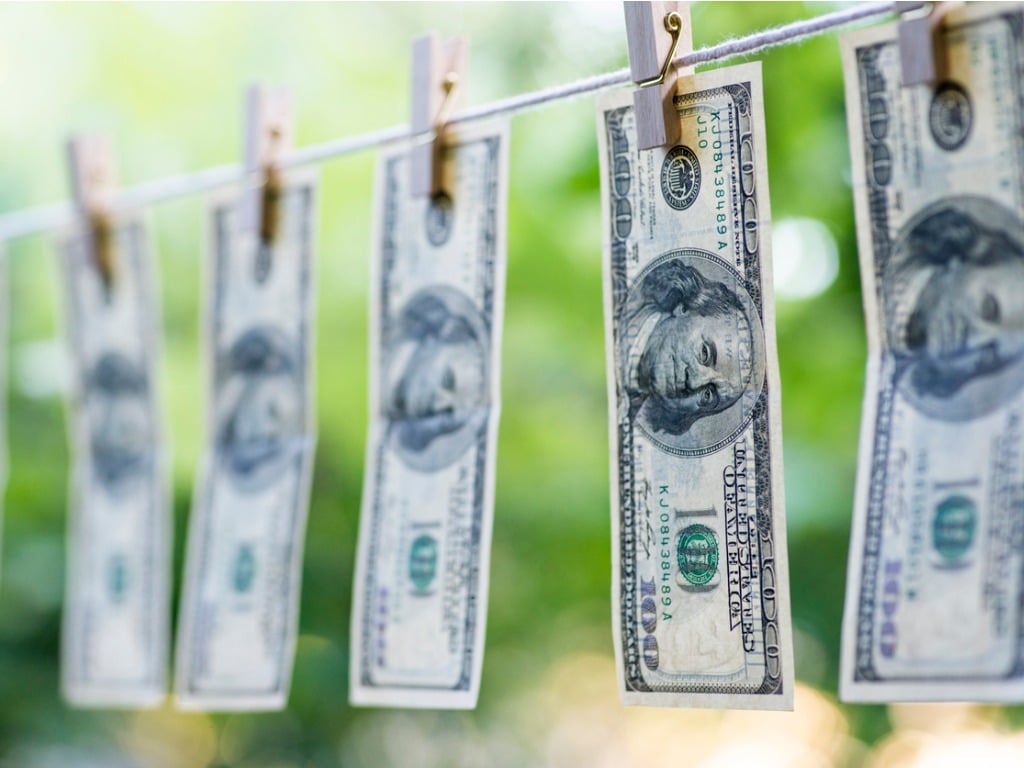On April 30, nonprofit organization the National Whistleblower Center (NWC) sent a letter to members of Congress advocating for stronger whistleblower provisions in the Anti-Money Laundering (AML) Act of 2020. The letter is cosigned by the National Whistleblower Legal Defense and Education Fund, Public Citizen, Government Accountability Project, Project On Government Oversight, Whistleblowers of America, and ACORN 8.
“The essence of money laundering is to hide the source of ill-gotten wealth,” the letter states. “Without insider information, this multi-trillion dollar highly corrupt international business cannot be stopped.”
The organizations acknowledge that the AML law is a start to addressing this type of crime but state that the Act’s whistleblower provision “contains some weaknesses that we urge Congress to rectify.” According to the letter, “[u]nlike the Dodd-Frank and False Claims Acts, the AML law does not guarantee whistleblowers meaningful compensation and the whistleblower reward program that it creates at the Department of Treasury is unfunded.” Additionally, the organizations write that the anti-retaliation provisions “exclude employees at FDIC-insured institutions and credit unions, thereby denying protection to employees of most US banks.” The organizations state that if “this coverage is removed, whistleblowers would be afforded fairly robust protection against retaliation.”
Previously, whistleblower experts wrote about this loophole in the AML Act’s whistleblower provisions. According to Stephen M. Kohn, founding partner at whistleblower law firm at Kohn, Kohn & Colapinto, “this carve-out will have devastating consequences on AML whistleblowers.” He writes that the carve-out is vast and will effectively exclude employees at all U.S. banks, forcing these excluded employees to rely on older AML laws which Kohn describes as “completely ineffective.”
The organizations’ letter mentions that the AML law “should be strengthened in conformance with the existing highly effective Dodd-Frank Act model.” The Dodd-Frank Act, passed in 2010, mandates strong whistleblower protection provisions for corporate whistleblowers. Under the Dodd-Frank Act, whistleblowers can obtain rewards for their disclosures as well. The Dodd-Frank whistleblower programs have been highly effective models of legislative success: read WNN’s coverage of these programs here.
The organizations also point to the whistleblower reward programs at the U.S. Securities and Exchange Commission and the Commodity Futures Trading Commission as effective models. “Each of these programs has resulted in billions of dollars of sanctions for the small price of millions paid to whistleblowers who are the backbone for countless enforcement actions and courageously step forward to protect investors and promote market integrity,” the letter states.
The letter concludes with an offer to discuss the suggestions further. The organizations state that they “support the readoption and passage of the 2020 Senate version of the Anti-Money Laundering Act in the 2021 American Jobs Plan.”
The organizations’ letter is addressed to Reps. Maxine Waters (D-CA), Chair of the House Committee on Financial Services, and Patrick McHenry (R-NC), Ranking Member of the same committee. It also addresses Sens. Sherrod Brown (D-OH), the Chair of the Senate Committee on Banking, Housing, and Urban Affairs, and Patrick Toomey (R-PA), Ranking Member of the same committee.
On the same date, NWC and the same group of organizations — with the addition of Transparency International’s U.S. office — sent a letter to Senator Debbie Stabenow (D-MI), Chairwoman of the Senate Committee on Agriculture, Nutrition and Forestry and Senator John Boozman (R-AR) urging the passage of the CFTC Fund Management Act. Read more about that letter here.
In NWC’s press release, Interim Executive Director Mary Jane Wilmoth said about the letters: “These critical initiatives will improve upon the whistleblower protections and reward structures contained in the AML Act of 2020 and at the CFTC. Congress has reaffirmed its commitment to whistleblowers time and time again, and we, alongside a coalition of whistleblower advocates, call on them to do so again.”
